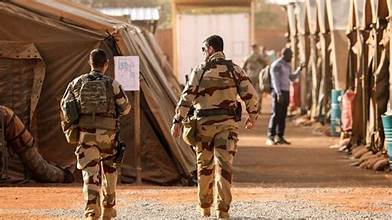In recent years, the presence of foreign military bases in Africa has increasingly become a topic of debate and contention. Among these bases, French military installations have historically maintained a significant presence across various African countries, often as part of France’s broader strategy to maintain influence in its former colonies and combat terrorism and instability in the region.
The decision by some African states to reconsider the presence of French military bases reflects a shifting geopolitical landscape and growing calls for greater sovereignty and autonomy in security matters. While France has portrayed its military presence in Africa as a means of promoting stability and security, critics argue that it perpetuates neo-colonial dynamics and undermines African agency in addressing regional challenges.
One such instance emerged recently when another African state, whose identity may vary depending on current events, signaled its intention to close a French military base within its territory. The decision was reportedly driven by a combination of factors, including concerns about sovereignty, domestic political considerations, and dissatisfaction with the terms of the military agreement with France.
For the African state in question, the presence of a foreign military base on its soil may be seen as a vestige of colonialism and a symbol of dependence on former colonial powers. Closing the base could be viewed as a step towards asserting greater control over its territory and security affairs, as well as asserting its independence in foreign policy.
Additionally, domestic political considerations may also play a role in the decision to close the base. Public sentiment regarding foreign military presence can vary, and political leaders may face pressure from constituents to take action on the issue. Closing the base could be perceived as a populist move to appease nationalist sentiments and rally public support.
Furthermore, dissatisfaction with the terms of the military agreement with France may contribute to the decision to close the base. African states hosting foreign military bases often negotiate agreements that govern the terms of the deployment, including issues such as jurisdiction, taxation, and environmental impact. If these agreements are perceived as unfair or overly favorable to the foreign power, it could fuel calls for renegotiation or termination of the arrangement.
The decision to close a French military base in another African state underscores the complex dynamics surrounding foreign military presence in Africa and the evolving relationships between African states and former colonial powers. It reflects a growing desire among African nations to assert their sovereignty and autonomy in security matters, as well as the challenges and complexities involved in managing relationships with external partners in pursuit of national interests.
